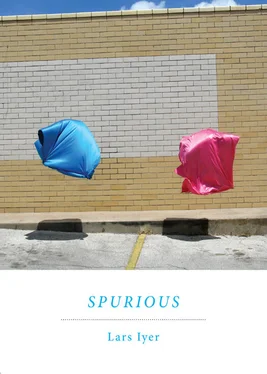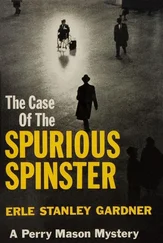‘You’re never witty’, says W., ‘that’s a sign of intelligence: wit’. W. says he is sometimes witty, but, more generally, he’s never witty. I never bring it out in him, W. says. I don’t make him more intelligent.
W. is more intelligent than me, he decides. But what about those illuminated moments when the clouds part, and I have ideas? It’s true, I do have moments of illumination, W. grants, but they are sporadic and lead nowhere.
Sometimes, W. concedes, it’s as if I have ideas. I once spoke to him very movingly about the Phaedrus , for example, and the reason why Socrates had to leave the city to talk to his friend.
W. immediately lays claim in his essays to any idea I might have. I would do the same, he says. But of course, my ideas are always wrong. They’re full of pathos, he says, and they sound correct, but in fact they are no such thing. — ‘You always get the Greek wrong. Always’.
But sometimes, for a moment, the clouds do clear. — ‘You manage to speak sense’, says W., ‘or something like sense’.
‘There was that time in the pub in Oxford’, W. remembers. ‘We all fell silent and listened in wonder. Not to what you said, which may or may not have been sensible, and in fact probably wasn’t — it was probably the usual pathos and hot air — but that you could say it’.
‘You of all people. No one expects it of you. Quite the opposite in fact. Which is why it’s so surprising’. W. himself was amazed. And there was that time on the long pier at Mount Batten. — ‘The clouds parted. You spoke sense for nearly an hour’. What did I speak about? W. can’t remember. But he’d been amazed, he remembered that.
‘Write it down! write it down!’ W. often cries during my moments of illumination, but when I read back my notes, I find only incomprehensible scrawls and random words without sense.
When I die, W. says, he’s going to be my literary executor. Delete, delete, delete, that’s what he’s going to do.
Which one of us is Kafka and which Brod? W. muses. We’re both Brod, he says, and that’s the pity of it. Brods without Kafka, and what’s a Brod without a Kafka?
We are both Brod, W. says, and Brod for one another. When an ass looks into the gospels, no apostle looks back; when Brod looks into Kafka, it’s only Brod who looks back. I am his Brod, W. tells me, but he is my Brod, too.
I am his idiot, but he is mine, and it’s this we share in our joy and laughter, as we wake each day into the morning of our idiocy, wiping the sleep from our eyes and stretching.
‘These are the last days’, says W. ‘It’s all finished. Everything’s so shit’, says W., ‘but we’re happy — why is that? Because we’re puerile’, he says. ‘Because we’re inane. It saves us’, W. says, ‘but it also condemns us’.
We’ve been singled out for something, W. has decided. We’ve been marked. Look at us in our flowery shirts, and everyone else slim and wearing black.
We’re men of the end, W. says. Do we take nothing seriously? Not even ourselves. Least of all that, says W.
W. reminds me of when I inspected his teaching. He drew diagrams for the students, two stick men. What was he explaining? Hegel and religion, he thinks. — ‘This is Lars’, he said, and drew a tiny cock on one of the stick men, ‘and this is me’, he said, and drew a huge cock on the other.
‘Why do you think we’re so puerile?’, he asks me later. We’ve always cursed our sense of humour. We’re not witty, we know that. It lets us down. We disappoint everyone.
W.’s got a higher IQ than me, he’s decided. A few points higher: that makes all the difference, he says. Intellectually, he stands slightly higher than I do; he has a wider view, a greater panorama. But perhaps this is why he despairs more than I do, and has a keener sense of his failure.
He can see more, says W., and he can also see himself in the context of the whole. He can see the great achievements of the past heaving up behind him like a plateau, and the open space from which great achievements will come in the future. And he can see his own inability to contribute in any way to these achievements, and that, indeed, he is a living obstacle in his body and soul to anything that might happen.
If W.’s on his dung heap perched up and looking around like a meerkat, he says, I’m still playing in the dung. What could I understand of achievement or failure or any of these issues? W. says. What can I understand of the magnitude of our failure?
‘What do you think your effect is on others?’, W. asks. ‘Do you motivate them, inspire them, spur them on? Do you make them think more than they could think on their own? Does the fact of your friendship change the way in which they see the world or vice versa?’
Every time he meets someone (except me), W. asks himself how he could have been kinder, better and more gracious. Every time he thinks of his friends (except me), he asks himself what he might do to help them or to look after them better; he asks himself what he might do to further their thought or their writing.
‘What does friendship mean to you, really?’, W. asks. ‘Do you think you’re capable of it? Do you think you’ve ever been a friend to anyone? Can you even conceive of what being a friend might mean?’: these questions constantly pass through his head, W. says, as he knows they do not pass through mine.
Friendship makes the highest demands upon him, says W. It’s a kind of test. It’s the only chance for him, friendship, says W.; that and love. Love and friendship are the only things that might redeem him, W. says. — ‘And what about you?’, he says. ‘How will you redeem yourself? What are you going to do to repent for your miserable existence?’
W., as usual, is reading about God. God and mathematics, that’s all he’s interested in. Somehow everything has to do with God, in whom W.’s not capable of believing, and mathematics, which W. is not capable of doing. And he’s reading about God and mathematics in German, W. says, which means he doesn’t really understand what he doesn’t really understand. He’ll send me his notes, W. says, they’re hilarious.
W.’s going to write on God, he says. And messianism. How are my studies of messianism coming along? W. asks me. And then: Should we really be writing about messianism? In fact, that’s how he’s going to begin his essay on messianism: by saying he is in no way qualified to write on messianism.
But what about God? He’s not really qualified to write about God either, W. says. God least of all. How could he, W., write about God? — ‘Of course it’s all a joke to you’, W. says. ‘You’ll write about anything — anything! You’ve no shame. Nothing inside you prevents you from parading your ignorance’.
W. wants to believe in something, he says, but he believes in nothing. — ‘It’s a game to you’, he says. ‘Messianism, God: what meaning can they possibly have for you?’ How am I going to begin my essay on messianism?
It’s beyond masochism in my case, W. says. It’s not that I want to punish myself by parading my ignorance, or not merely that, he says. It’s something cosmic, he says. There’s something cosmic streaming through me. There’s a cosmic storm howling through my ignorance and my shamelessness, says W.
He blames me for everything, W. says. Somehow this is all my fault. — ‘You’re dragging me down’, W. says, ‘everybody says so’.
But then perhaps some part of him wants to be dragged down, W. has to concede that. But I am dragging him down even more quickly than he would want to be dragged down, he says. It’s cataclysmic. How could he have guessed at the humiliations that lay before him? How could he have known?
Читать дальше












